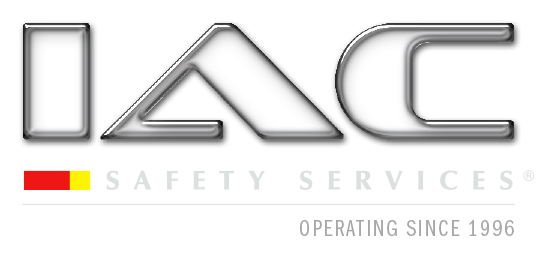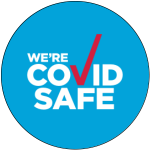Work Health and Safety Operational Plan
The purpose of this plan is to publish the workplace health and safety system adopted to meet our obligation to prevent work caused injuries and illnesses. It also details the systems adopted to return those who have suffered a work related injury or illness to achieve their highest potential in full, productive and meaningful employment as soon as reasonably practical.
Authorised by- Mr David Conyngham MOHS
Version 1 – October 2012.
Occupational Health and Safety Management Systems (OHSMS)
Elements: > Commit > Plan > Implement > Measure & Evaluate > Review & Improve
Work Health and Safety Regulation Obligations
Representation And Participation
- Representation
- Issue Resolution
- Cessation of Unsafe Work
- Workplace Entry by WHS Entry Permit Holders
General Risk And Workplace Management
- Managing Risks to Health and Safety
- General Workplace Management
- Information, Training and Instruction
- First Aid
- Personal Protective Equipment
- Managing Risks from Airborne Contaminants
- Storage of Flammable/Combustible Substances
- General Working Environment
- Emergency Plans
- Remote or Isolated Work
- Hazardous Atmospheres
- Falling Objects
Hazardous work
- Noise
- Hazardous Manual Tasks
- Confined Spaces
- Falls
- High Risk Work
- Demolition Work
- Electrical Safety and Energised Electrical Work
- General Risk Management
- Residual Current Devices
- Overhead and Underground Electric Lines
- Electrical Equipment and Electrical Installations
- Electrical Work on Energised Electrical Equipment
- Electrical Equipment and Installations and Construction Work – Additional Duties
Anti - Impairment Policy
IAC Safety Services® anti impairment policy responds to drug and alcohol related risk to the
health, safety or welfare. If a course participant is observed to be working or behaving in an
unsafe or disruptive manner, it is the responsibility of the trainer / assessor to remove that course
participant from the workplace in accordance with this policy and direct them back to their
supervisors. Any such action must be immediately reported back to the Managing Director.
Refer also to the Condition, illness and Injury Checklist, which appears in the introduction
power point presentation of each training and assessment services.
Training and Assessment Policy
- IAC Safety Services is committed to ensuring that all assessments conducted are performed in a manner which complies with the National Training Framework in the Vocational Education and Training sector.
- All persons authorised to conduct assessments on behalf of IAC Safety Services are appropriately qualified, experienced and subject to ongoing professional development and quality control measures.
- The roles and responsibilities of all persons involved in assessments are clearly defined, disseminated, understood and accepted.
- All records associated with training and assessments will be treated as confidential, created and captured in a full and accurate manner, appraised, appropriately classified and committed to IAC Safety Service’s Record Management System.
- All appropriate training and assessment information will be provided to assessors and candidates to enable consistently valid assessments.
- The rights and responsibilities of the candidates involved will be explained verbally during an awareness session prior to their training and assessment and, where necessary, during and after their assessment. In addition, appropriate literature will be provided to the candidates to support their understanding of their rights and responsibilities.
- Feedback will be provided to all stakeholders within structured guidelines without compromising confidentiality at any stage of assessment.
- Consultation with stakeholders will occur at appropriate stages of the process.
- The entire assessment process will be subject to quality assurance and continuous improvement mechanisms.
- Evidence will be gathered by means of established predetermined assessment tools developed within the rules of evidence. The evidence will then be judged within the predetermined guidelines.
- Transitional arrangements including Recognition of Prior Learning, Current Competencies and reasonable adjustment will also occur within predetermined guidelines.
Plant And Structures
- General Duties for plant and Structures
- Duties of PCBU that Design Plant, Manufacture Plant, Import Plant or Supply Plant
- Duties of PCBU that Install, Construct or Commission Plant or Structures
- General Duties of a PCBU Involving the Management or Control of Plant
- Duties Relating to Registered Plant and Plant Designs
- Registration of Plant Designs and Items of Plant
Construction Work
- Duties of Designer of Structure and Person Who Commissions Construction Work
- Duties of Person Conducting Business or Undertaking
- General
- High Risk Construction Work – SWMS
- Excavation work
- Additional Duties of Principal Contractor
- General Construction Induction Training
Hazardous Chemicals
- Obligations Relating to MSDS and Other Matters Placards
- Register and manifest of Hazardous Chemicals Pipelines
- Control of Risk – Obligations of PCBU Health Monitoring
- Induction, Information Training and Supervision
- Prohibition, Authorisation and Restricted Use
- Lead
- Lead Process
- Control of Risk
- Lead Risk Work
Asbestos
- Prohibition and Authorised Conduct
- General Duty
- Management of Asbestos and Associated Risks
- Management of Naturally Occurring Asbestos
- Asbestos in the Workplace
- Health Monitoring
- Training
- Control on Use of Certain Equipment
- Demolition and Refurbishment
- Asbestos Removal Work
- Asbestos Removal Requiring Class A Licence
- Asbestos Related Work
- Licensing of Asbestos Removalists and Asbestos Assessors
ASP Assist
ASP Assist® is a program designed to assist Accredited
Service Providers achieve and maintain ‘contestable
works’ status within the electricity industry.
For more information contact IAC Safety Services on
1300 887 317 or visit www.iacsafetyservices.com.au

